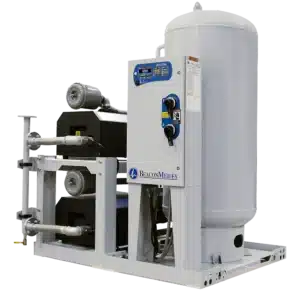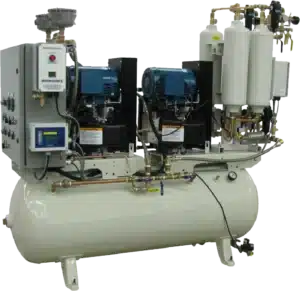In Vitro Therapy: Essential Gases and Medical Testing Solutions
In vitro therapy, a significant part of assisted reproductive technology (ART), has revolutionized the field of reproductive medicine, offering hope to numerous couples struggling with infertility. This article examines the crucial role that certain gases play in maintaining an ideal environment within the laboratory setting, as well as the medical testing solutions that facilitate these procedures.
Introduction:
In vitro fertilization (IVF) and other forms of ART have emerged as groundbreaking medical techniques, offering promising therapeutic solutions to a variety of infertility cases. An essential component of these procedures is the optimization of laboratory conditions, which includes providing the appropriate gaseous environment. This article discusses the importance of specific gases in in vitro therapy and the relevant medical testing solutions that facilitate their installation and monitoring.
I. Essential Gases in In Vitro Therapy
Carbon Dioxide (CO2)
Carbon dioxide plays a vital role in maintaining the optimal pH for embryo culture media. Incubators that house developing embryos typically require CO2 concentrations between 5% and 6%. This helps to maintain a pH of approximately 7.2 – 7.4, which mimics the environment of the female reproductive tract, thereby promoting embryo viability and development.
Oxygen (O2)
Oxygen is an essential gas for cellular respiration, as it is a vital electron acceptor in the production of adenosine triphosphate (ATP), the energy source for cellular processes. In in vitro therapy, maintaining an oxygen concentration of 5 – 20% is critical for supporting the metabolism of the growing embryo. Lowering O2 concentration can also help to reduce the production of reactive oxygen species (ROS), which can lead to oxidative stress and compromise embryo development.
Nitrogen (N2)
Nitrogen is an inert gas that is often used to displace oxygen in controlled laboratory environments. In the context of in vitro therapy, nitrogen is used to create a hypoxic environment, as it allows for the regulation of O2 concentrations. This can help to mimic the in vivo environment more closely and improve embryo culture conditions.
II. Medical Testing Solutions
Gas Monitoring Systems
It is crucial to maintain accurate and consistent gas levels in the in vitro therapy laboratory. Advanced gas monitoring systems can ensure that gas concentrations remain within the appropriate range for optimal embryo development. These systems can be integrated with alarms to alert staff of any deviations from ideal gas levels, allowing for prompt intervention.
Gas Delivery Systems
Proper gas delivery is essential to maintain the desired gaseous environment. Medical-grade gas cylinders, gas generators, and gas mixing systems can be employed to supply the necessary gases to the laboratory. Medical testing solutions can assist in the installation of these systems, ensuring their safe and effective operation.
Gas Purity and Quality Control
To minimize the risk of contamination and adverse effects on embryo development, it is crucial to use high-quality, medical-grade gases. Medical testing solutions can provide routine gas purity testing and quality control checks, ensuring that gases are free from contaminants such as particulate matter, moisture, and volatile organic compounds (VOCs).
In vitro therapy is a highly specialized and sensitive medical procedure that relies on the appropriate gaseous environment for successful outcomes. Medical testing solutions play a vital role in providing the necessary gases and monitoring their levels, ensuring optimal laboratory conditions for embryo culture and development. By understanding the importance of essential gases and leveraging advanced medical testing solutions, in vitro therapy can continue to provide hope and solutions for couples experiencing infertility.


